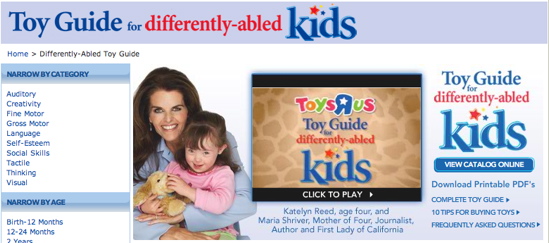As many of you may know, I walk with a fairly obvious limp; what you may not know is the reason I walk with that limp. I’ll save all the details for another time; right now, I’ll just give you a name: Cerebral Palsy.
Since I was born with a condition ambulance-chasing lawyers think is tragically awesome, I get to park in those spacious blue parking spaces that always seem to be openly mocking all you able-bodied people. (It’s not your imagination; they really are mocking you. And so am I.) But more importantly, I get to be part of an important hyphenated cultural group: Euphemism-Americans.
I’m bringing this up now for two reasons. The first is my longstanding irritation with today’s vogue term, “disabled.” Those who know me well likely have heard me make some comment about the replacement of “handicapped” by “disabled”; those who don’t know me … well, I’ll summarize for all of you.
Consider the word in other contexts. A disabled car doesn’t work at all; a disabled software option doesn’t work at all; a disabled alarm system doesn’t work at all. It’s not just some glitch that makes it work less efficiently than most cars or software options or alarm systems; it is a total failure of that particular car, option or system. In that light, it seems to me that a disabled person would be dead, because dead people just don’t work (although they have been known to vote in Chicago); in that sense, it seems to me that disabled is actually closer to crippled — a term long fallen out of favor — than it is to handicapped. But somehow, that sense fades to the background when disabled is applied to people.
This confuses me a bit because the previous term, handicapped, made so much more sense; it seemed to me that its uses in other contexts actually made it fairly accurate in this context. But true to the long-term pattern of moving away from simple accuracy and towards something else I really don’t understand, handicapped fell out of favor, and disabled grew in stature and in favor with men. And now it is the reigning reference for Euphemism-Americans.
Ah, but even though disabled is the current reference of choice, there seems to be no end to the creativity modern society can exhibit when it comes to new and exciting terms for us Euphemism-Americans. And that creativity is the second reason I brought up my CP.
Just the other day, Legal Counsel Justin sent me a link to a page on the Toys “R” Us website. The subject line of his email read, “is this better than disabled?”; based on that subject line, I knew it had to be good. And my goodness, it was better than good. When I clicked the link, I was whisked away to a page that actually made me laugh out loud.

Kudos to you, Toys “R” Us, for making this Euphemism-American laugh. “Differently-abled” truly is a euphemism god among men.
—–
I should probably clarify a couple things:
First, though I don’t have any love for the term “disabled,” I certainly don’t consider it an offensive term. My disdain is not that pointed. I will not become upset if you use the term around me or in reference to me; in fact, I might even laugh at you. And in any case, I won’t even be close to offended, so don’t get all paranoid about it. The world is already paranoid about too many things.
Second, I am aware that there are other more specific terms in use, like “person with a disability.” And while I suppose that is a bit more accurate, it’s also wordy. And given the common use of the shorter disabled, those more specific wordy terms are probably culturally supplemental; the shorter terms are much more headline-friendly.

bonus points for the Chicago voting reference
I also enjoyed the Chicago voting reference (FYI).
at the Toys R Us ad. Sometimes people try so hard to not offend anyone that their efforts are in themselves offensive. When I hear the commonly used word ‘disability’, it quickly registers with me ‘Ok. These kids have different needs than the mainstream.’ (Come to think of it, don’t we all?) When someone like Toys R Us comes up with a phrase like “differently-abled” it makes me stop and excessively ponder the topic and puts all the focus on the disability itself, and not on the person.
All in all, it reminds me of the old George Carlin bit about euphemisms. Have you seen that one?
“Cripple” is the best by far. It invites such powerful images: one can see “cripple”. “Disabled” or even “handicapped” is too sterile, neat. Something a politician or lawyer would create. Even better, “cripple” is a 1950s word, and those are always fun words.
Leslie, I had not heard that Carlin bit, but I was able to find it on YouTube. It’s very funny.
Family-friendly note: since it’s Carlin, there is a small bit of language, but in the context of Carlin (and modern comedy in general), it’s actually very clean.
http://www.youtube.com/watch?v=h67k9eEw9AY
The humor relevant to this post starts around the 2:45 mark.
And js, Carlin does have some funny comments about “cripple.”